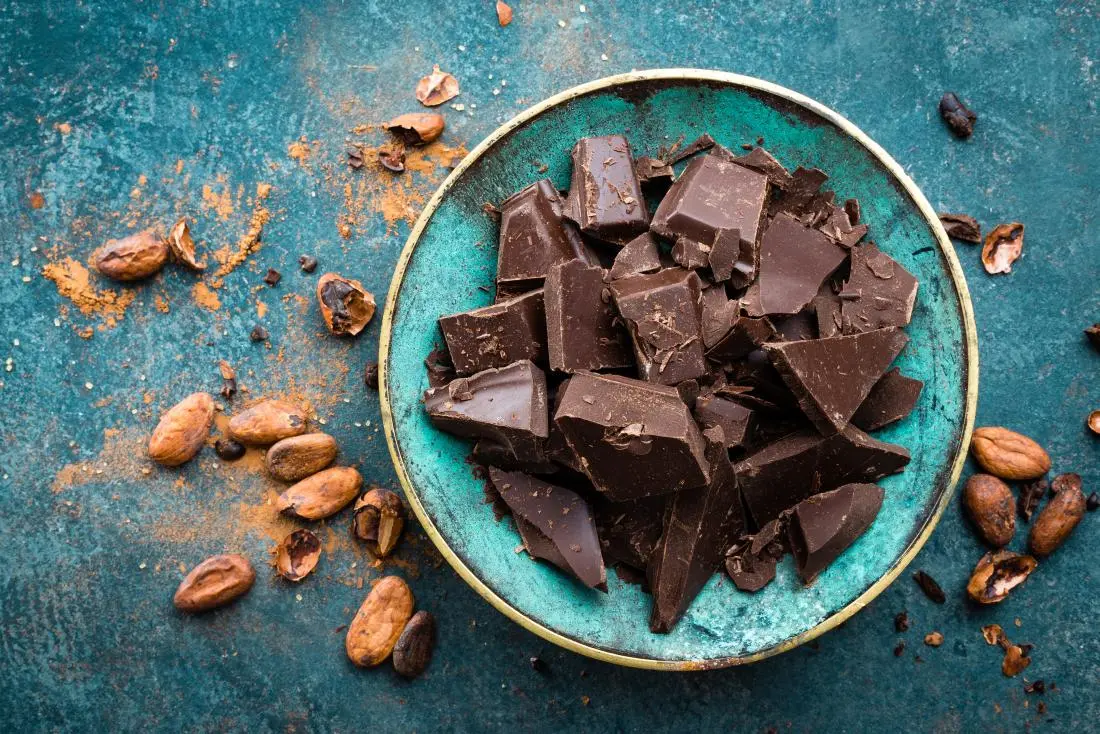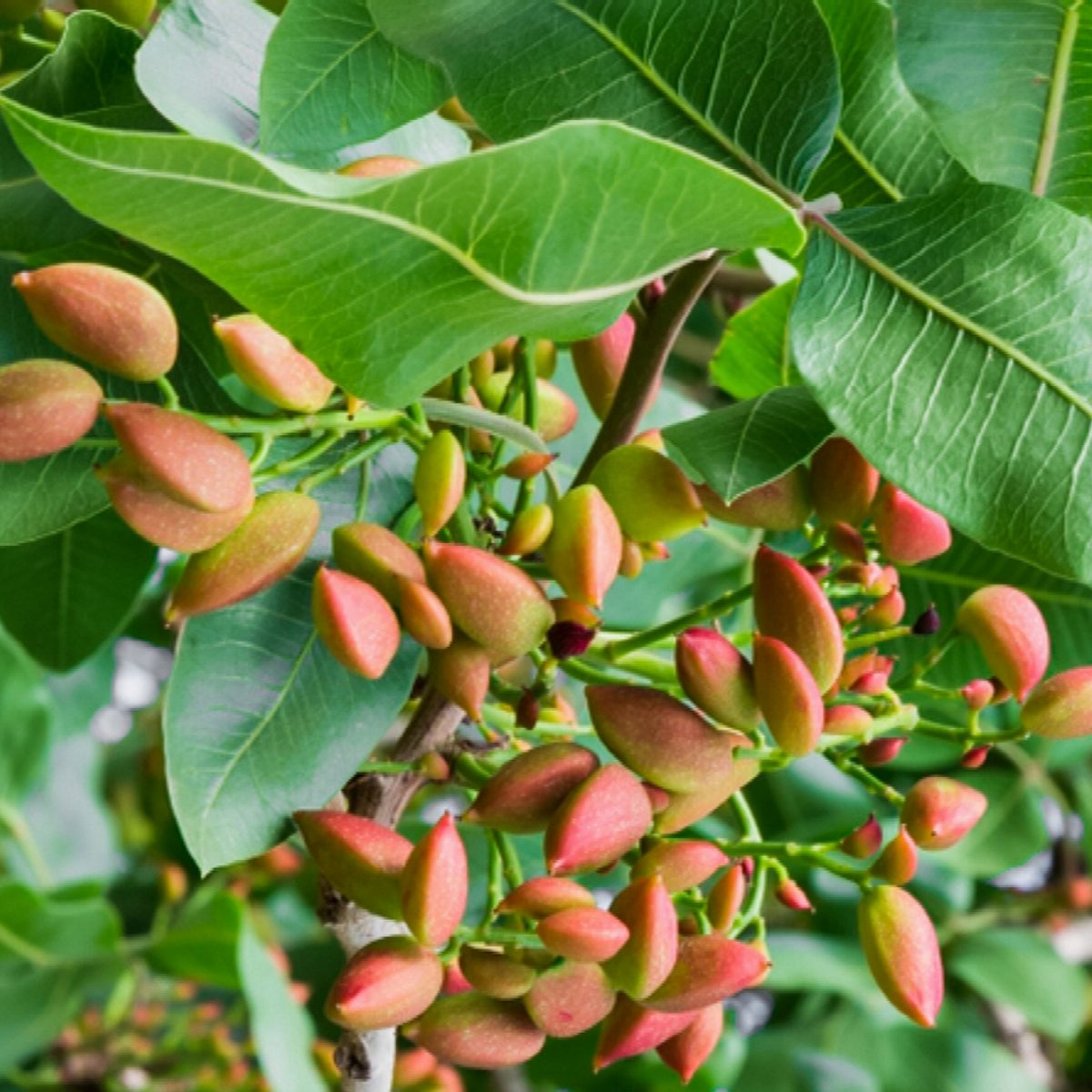Some people think that healthy food is boring to eat and tasteless. But I’m worried that is not so true. Here is The Must Read Health Guide You Should Know While Eating 13 best foods that are better than the so-called tasty junk food.
1. Dark Chocolate:
Numerous studies indicate that dark chocolate is highly healthful and may lower your chance of developing a number of ailments.
Along with minerals like iron, magnesium, copper, and manganese, it also contains a lot of fibre and antioxidants.
Dark chocolate contains plant-based substances that have been demonstrated to lower blood pressure, support brain health, and guard against heart disease and the sun’s damaging effects of ultraviolet (UV) radiation.
Consume dark chocolate with a cocoa level of at least 70–85% to get the best health benefits.
A decent cup of coffee and a piece of dark chocolate go along very well.
2. Almonds With Rich Nutrients:
The ultimate crunchy delight is an almond. They are incredibly nutrient-dense, contain lots of heart-healthy fats, and don’t need to be cooked.
Almonds are a great source of fibre, protein, and a number of vitamins and minerals, including vitamin E, manganese, and magnesium. They are also a great source of antioxidants.
They could reduce oxidised LDL (bad) cholesterol, blood pressure, and cholesterol levels, all of which are risk factors for heart disease.
Even though they contain a lot of calories and fat, they are also incredibly satisfying. According to one research, using almonds in a weight-reduction diet might enhance weight loss by as much as 62%.
Try placing 2-3 almonds inside a date for a delicious treat if you’re seeking something sweet.
3. Blueberries:
Blueberries are tasty, vibrant, and nutrient-dense.
Only 84 calories and 4 grammes of fibre are included in one cup (150 grammes) of blueberries. Additionally, it contains a lot of vitamins and minerals, including manganese, vitamin K, and vitamin C.
In addition to preventing oxidative damage and chronic illnesses, blueberries are a potent antioxidant that may help older persons’ memory. They may be eaten fresh or frozen, and they taste very good when combined with yoghurt or heavy cream.
4. Pistachios:
These salty, crunchy nuts are very delicious.
Pistachios are a great source of fibre, heart-healthy fats, and superior protein.
Additionally, they are an excellent source of iron, phosphorus, potassium, and B vitamins.
Pistachios, which are packed with potent antioxidants, have been associated with better blood lipids and decreased levels of oxidised LDL (bad) cholesterol, inflammation, and blood sugar.
When eaten in moderation, pistachios are quite satisfying and may help with weight maintenance.
Just be careful not to have too many at once because pistachios are quite calorie-dense. Pistachios contain 125 grammes in a cup or 700 calories.
5. Cherries:
These gorgeous, deep-red berries make a tasty and healthful snack.
Cherries are abundant in nutrients like fibre and vitamin C yet low in calories.
They also include a lot of plant chemicals and antioxidants.
Cherries are a good source of nutrients that might help prevent diseases including cancer, heart disease, type 2 diabetes, and Alzheimer’s.
6. Delicious Mangoes:
Tropical fruits like mangoes are high in soluble fibre, many antioxidants, vitamin A (from beta-carotene), and vitamin C. They have glycemic index (GI) values that range from low to medium and are generally modest in calories, so they shouldn’t result in significant blood sugar rises.
Mangoes are rich in phytochemicals and antioxidants that may lower your risk of oxidative damage and a number of chronic illnesses, including cancer.
Many people enjoy adding fresh mangoes to yoghurt, smoothies, and morning porridge because they are so tasty.
7. Juicy Cheese:
Cheese is regarded by many as one of the most appetising foods. It is very nutrient-dense, being high in calcium, vitamin B12, phosphorus, selenium, and zinc, among other vitamins and minerals.
Dairy products, such as cheese, have been linked to better bone health and may be able to stave against the illness osteoporosis, which is characterised by bone loss and a higher risk of fractures.
There are many different kinds of cheese; all of them are mostly made of fat and protein, and the majority of them include a lot of calories.
Cheese’s high protein content may help decrease blood pressure and boost mineral absorption.
Cheese is not only delicious and satisfying, but it also has several health advantages.
8. Avocadoes:
Avocados are strange fruit that is high in fat and has a smooth, creamy feel. They’re a fantastic source of copper, potassium, fibre, vitamins C, E, and K, as well as healthful monounsaturated fatty acids, antioxidants, and fibre.
Consuming avocados is excellent for heart health since it can increase HDL (good) cholesterol and lower blood cholesterol and triglycerides by up to 22%.
Avocados are a good choice for weight reduction since they are also highly filling and barely affect blood sugar levels.
Try adding some salt and pepper to your avocado if you don’t like it plain.
If it doesn’t work, try mixing 1 small avocado, 1/2 a banana, and 1 tablespoon to make avocado chocolate pudding.
9. Sweet Potatoes:
Sweet potatoes are incredibly healthy, rich in fibre, and sweet to the taste.
They offer good levels of vitamin C and other vitamins and minerals and are a fantastic source of vitamin A (from beta-carotene).
Additionally rich in antioxidants, sweet potatoes may lessen oxidative damage and hence lower your chance of developing cancer. A white variant could also assist in regulating blood sugar levels.
Sweet potatoes taste fantastic whether they are boiled, roasted, or fried, and they are much better when served with some sour cream or salted butter.
10. Yoghurt:
Yoghurt is a tasty and nutritious fermented dairy product. It also has a lot of vitamins, minerals, and high-quality fats and proteins.
Yoghurt consumption has been linked to both better bone health and lower blood pressure.
Active cultures of benevolent bacteria are present in several yoghurt varieties advertised as probiotic yoghurt.
The production of numerous B and K vitamins in your digestive system as well as increased immunity, digestion, and cholesterol levels are just a few of the health advantages of these probiotic bacteria.
Yoghurts with a lot of added sugar should be avoided, nevertheless. Purchase natural yoghurt instead, then top it with fruit, berries, or muesli for additional taste and crunch.
















